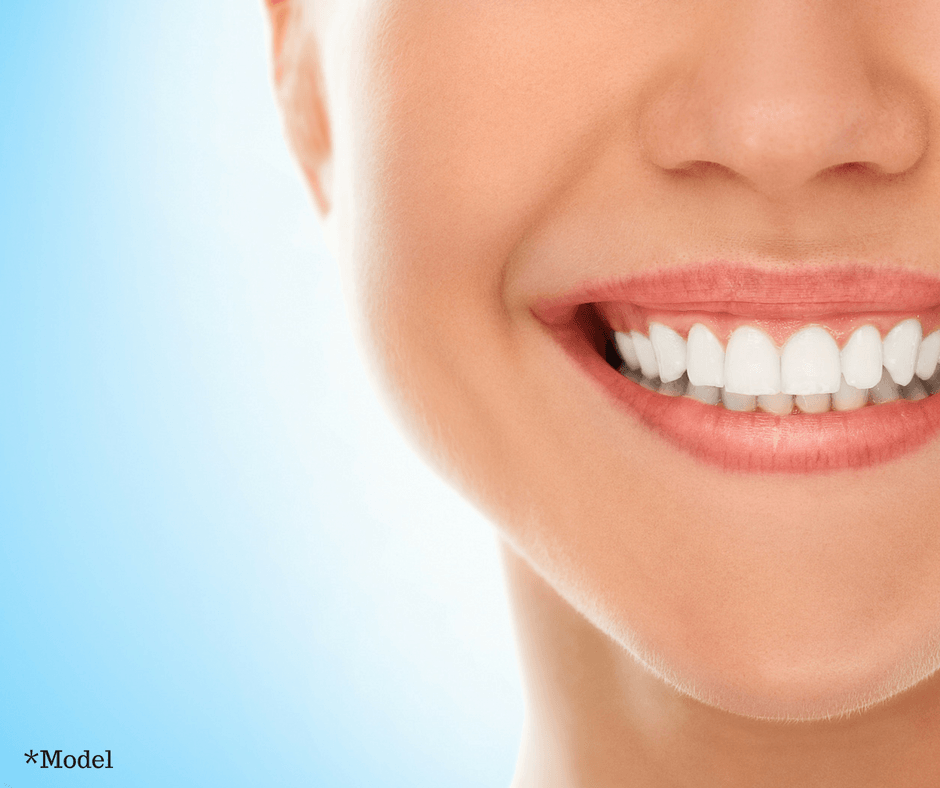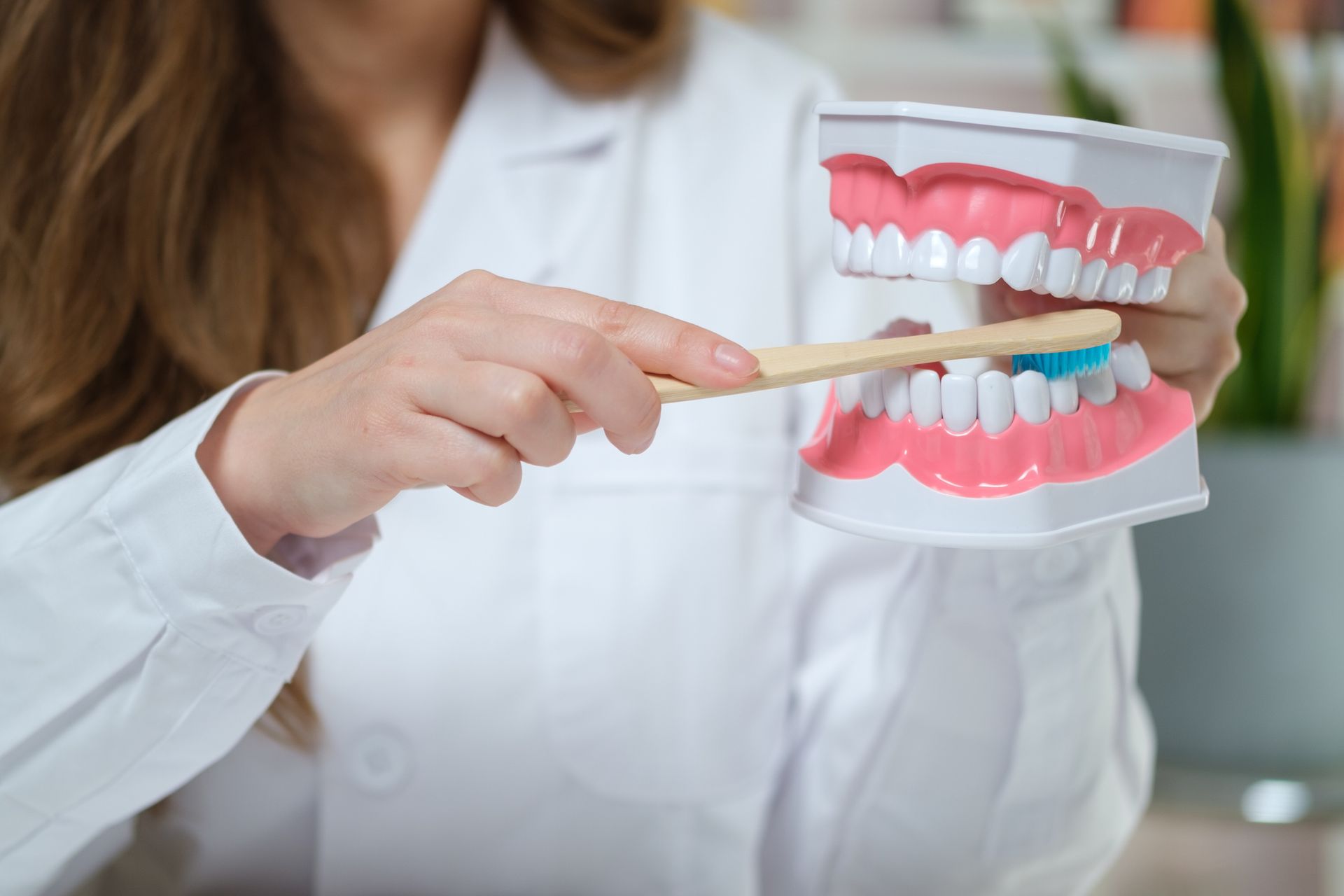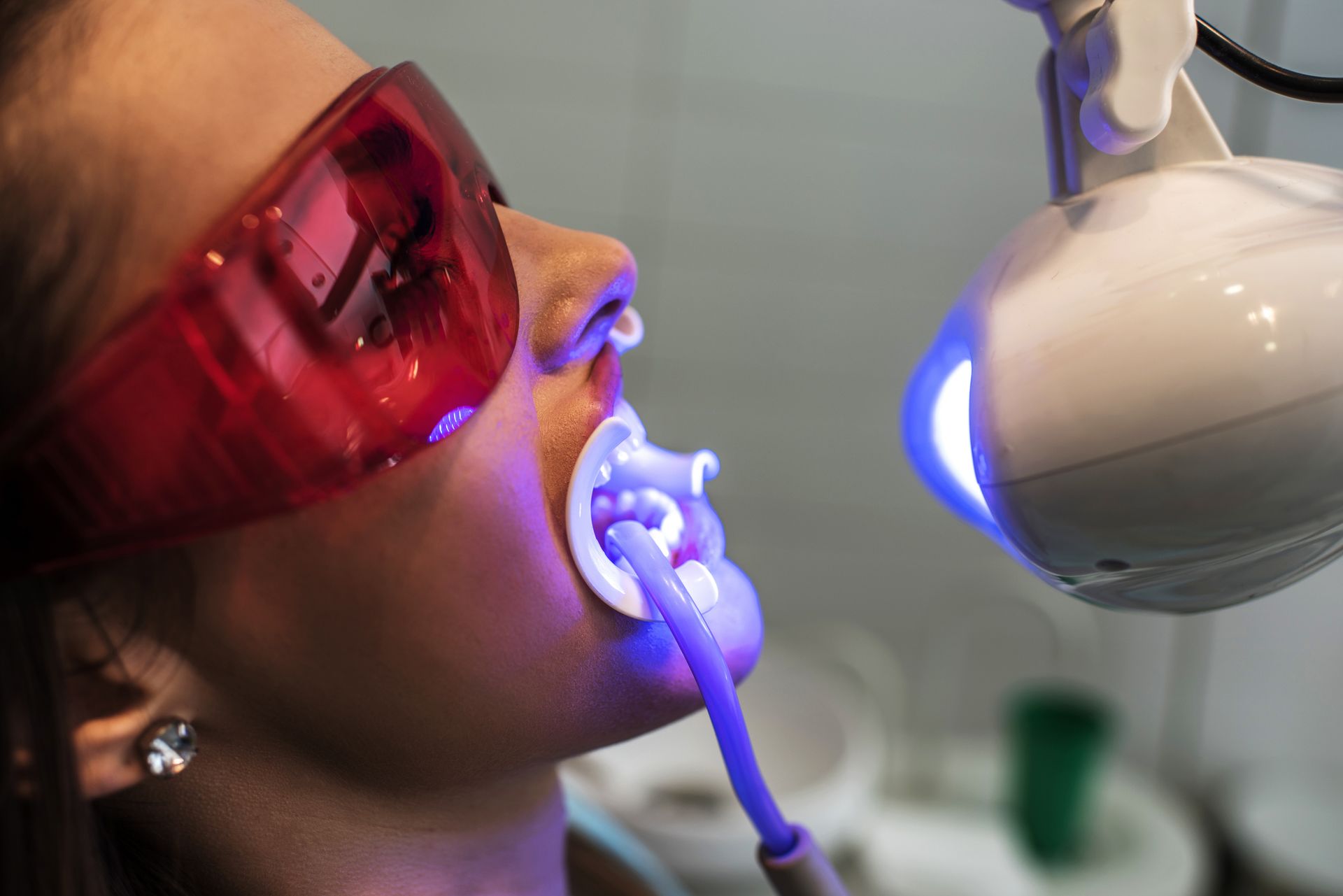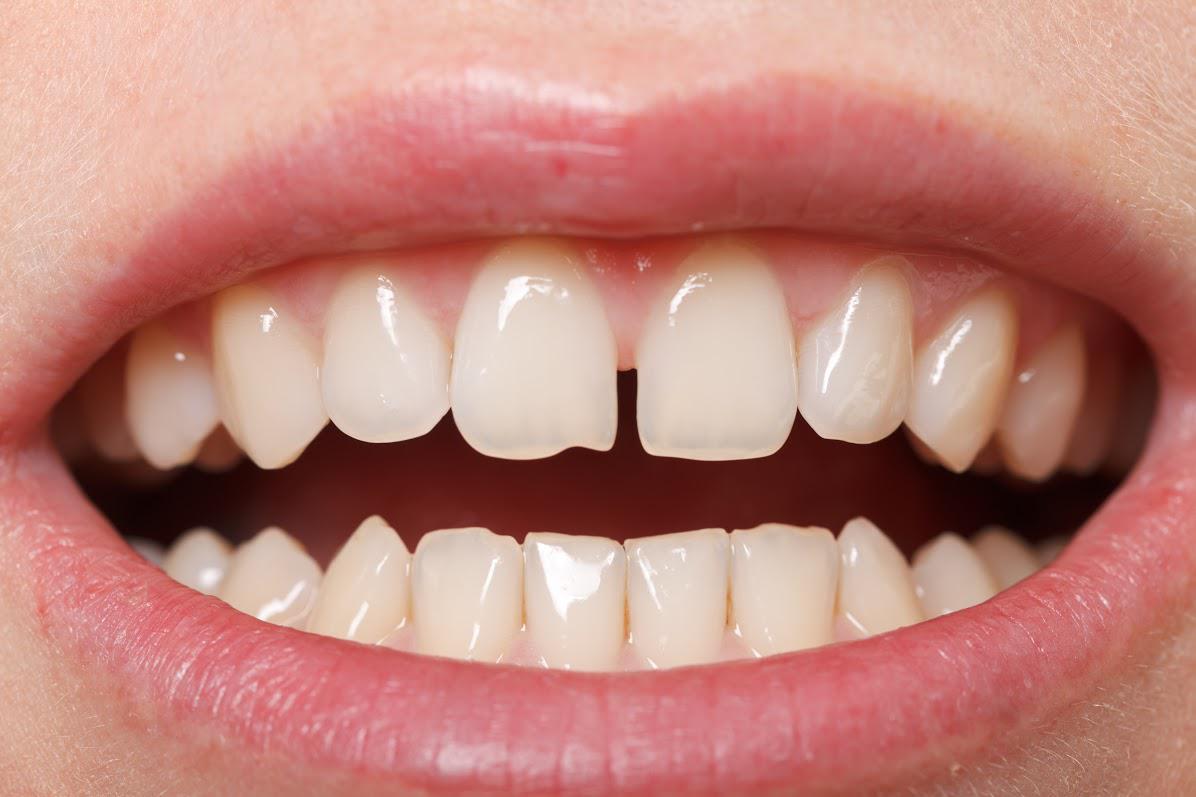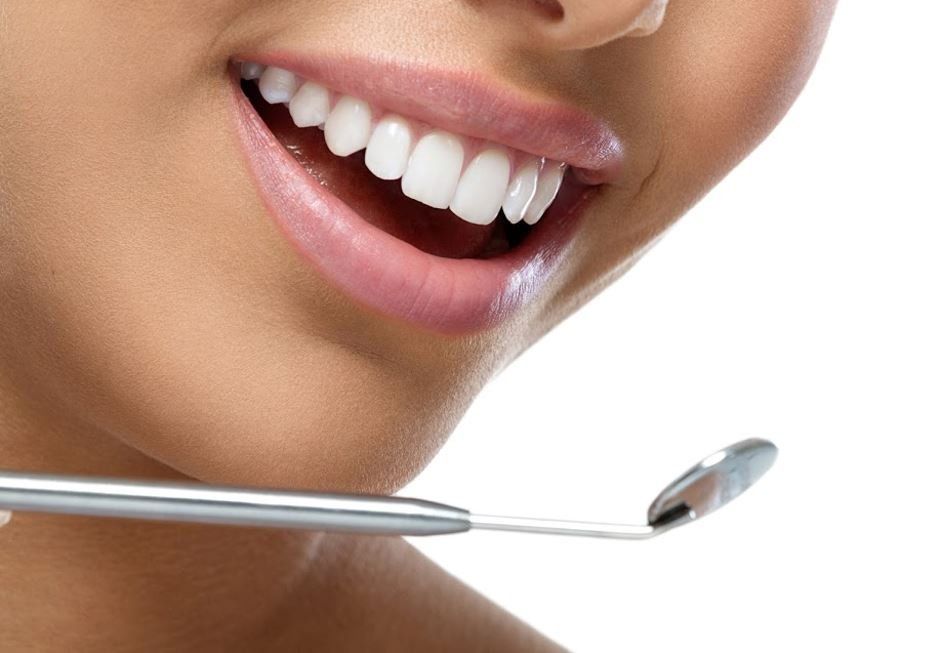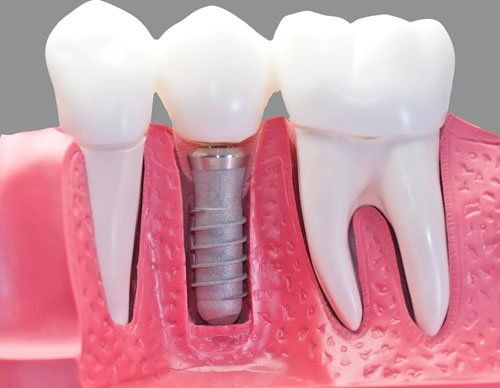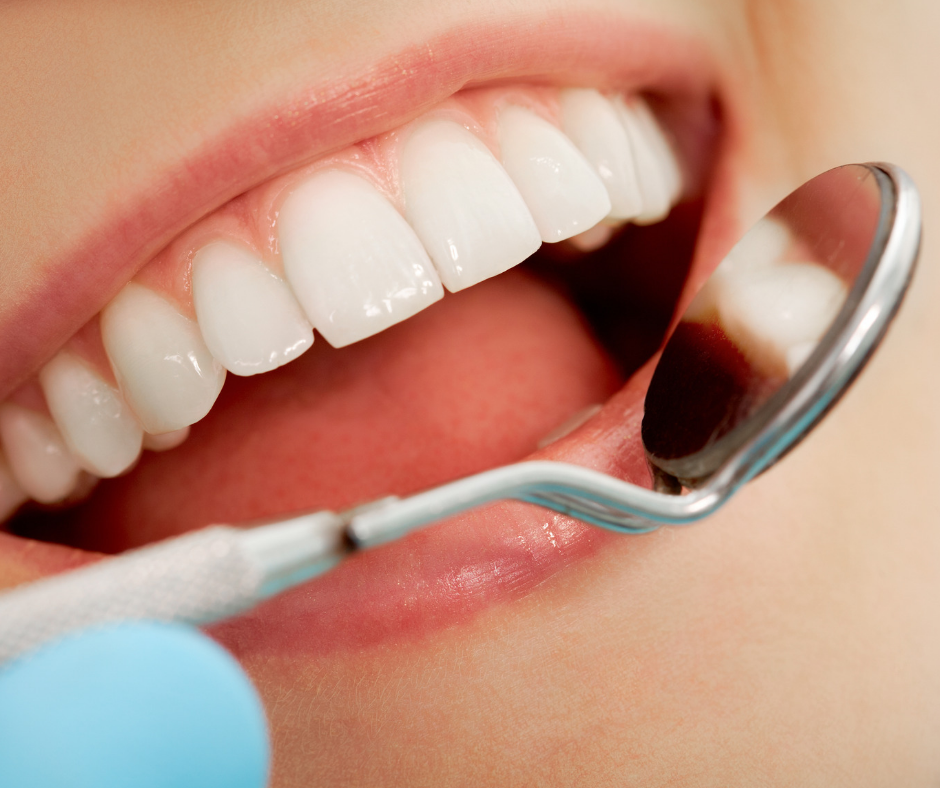5 Options for Whiter Teeth
Admin • January 17, 2019
Having a bright, white smile is important in this day and age, but many people struggle with routine or stubborn stains. Whether your stains are caused by trauma, poor hygiene, smoking, food or beverages, you can have whiter teeth. Check out these five options you should consider for whiter teeth so you know which is best for your smile.
1. Over-the-Counter Whitening Treatments
Over-the-counter whitening treatments can be purchased at your local grocery store or pharmacy. They include:
- Whitening toothpastes
- Gels
- Strips
- Creams Trays
These are the most affordable options for whitening teeth, but they are slow to work, making them a poor choice if you want immediate results. The cheaper the product, the slower and less drastic the results. They may be great, however, for maintaining a whiter smile or reducing mild stains over a long period of time.
2. Professional Teeth Whitening
Professional teeth whitening is a great choice if you want excellent results fast. At-home professional whitening is an option, so you can get professional results in the privacy of your own home; however, treatment time is longer than in-office whitening. At Gregory S. Rutherford we offer custom bleaching trays so that our patients can whiten their teeth while sleeping.
3. Dental Bonding
Some stains are resistant to whitening, including:
- Darkened dentin from trauma
- Stains from certain antibiotics
- Discoloration from overexposure to fluoride
In other cases, your teeth may simply be prone to stains because you have small chips or cracks in the enamel.
In this case, teeth bleaching may not be enough, but dental bonding can be used to hide any stain. With dental bonding, a special composite resin is placed on the desired teeth, and the dentist shapes the resin to look like the front of a natural tooth. Results are fast, and the resin is toothcolored, but it may not have the same properties as natural tooth tissue.
4. Porcelain Veneers
Porcelain veneers are one of the most popular ways to correct stubborn stains because they look like natural tooth tissue. As with dental bonding, porcelain veneers are good if your teeth are resistant to whitening, and/or you have other cosmetic problems (chips, cracks, gapping, etc.).
Veneers can only be placed on front teeth, and they do not strengthen weak teeth. Veneers are more expensive than dental bonding, but they last a long time and are resistant to stains.
5. Porcelain Dental Crowns
Porcelain dental crowns are like veneers, but they cover the entire tooth surface to hide any stain on any tooth, including back teeth. They can also correct many other cosmetic concerns, but unlike veneers, dental crowns strengthen teeth by giving them a new solid exterior to withstand daily wear and tear.
Dental crowns require a lot of healthy tooth tissue to be removed, however, so they may be best if you have cosmetic concerns and weak teeth. Porcelain dental crowns may need to be replaced in the future, but if your teeth are weak, they may be considered medically necessary by your dental insurance carrier.
Dingy, yellow and stained teeth make you want to hide your smile, but you can choose from so many whitening options, even if your stains are resistant to whitening. Get started today and have a whiter smile tomorrow.
For more information about how you can get a whiter and more attractive smile, give Gregory S. Rutherford, DDS, PA, a call today or shoot us a message to schedule your first appointment.

